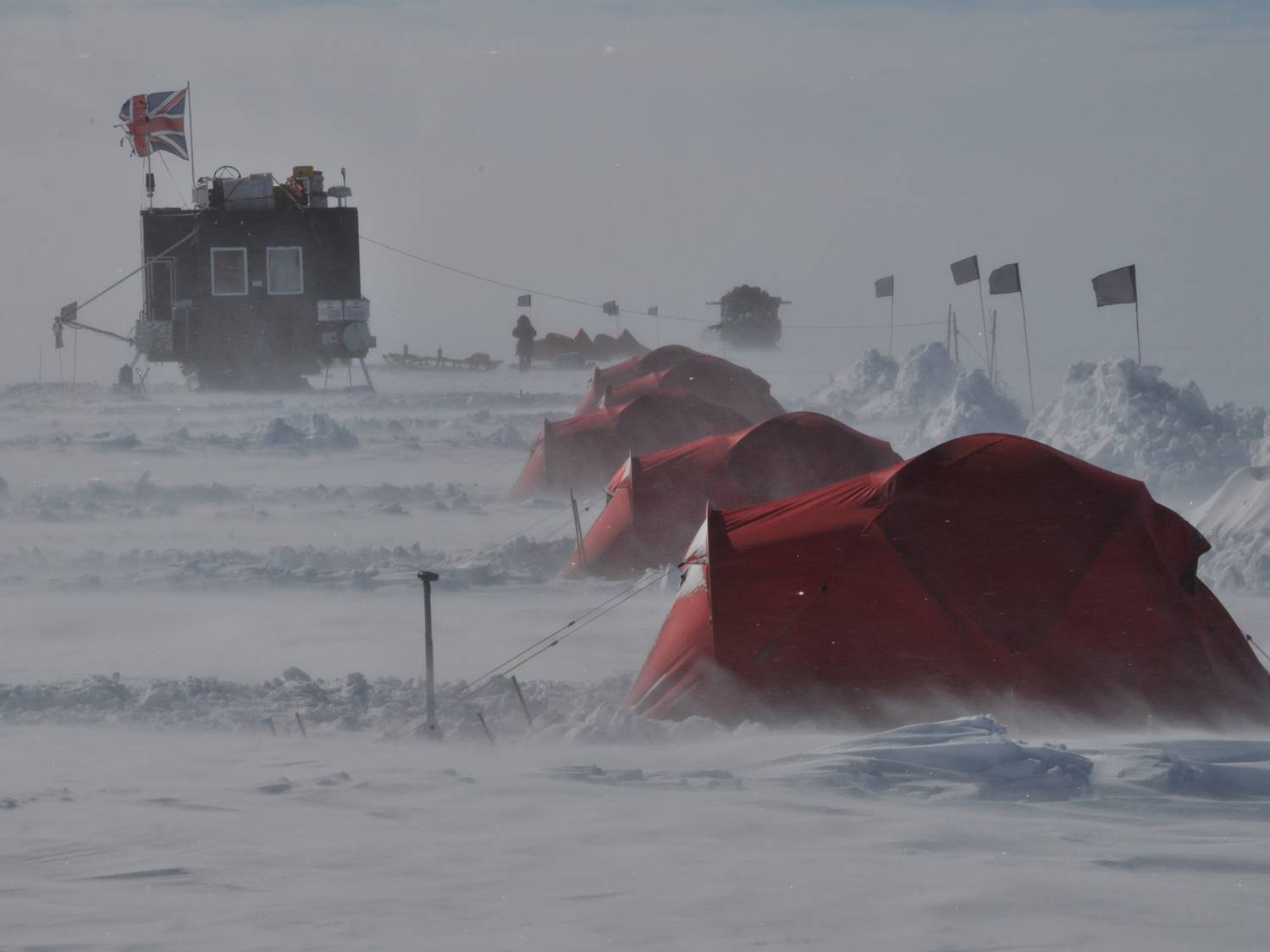10 December, 2015 by Nicholas O'Flaherty
Jane Francis, Director of the British Antarctic Survey, spoke at World Science Week on iSTAR, the largest British Antarctic Survey programme working on the Pine Island Glacier in West Antarctica. This glacier is rapidly thinning, and is currently the single biggest contributor to sea level rise at 3mm per decade.

The wind-blown campsite at Pine Island Glacier. Temperatures on the glacier usually average about -10 degrees Celsius (image supplied).

A composition satellite map of Antarctica that measures the elevation change of ice in Antarctica. The areas shown in red are those areas that are beginning to thin – note that Pine Island Glacier is particularly prominent (image supplied).

Jane Francis, Director, British Antarctic Survey
Professor Jane Francis is the Director of the British Antarctic Survey, and formerly Professor of Palaeoclimatology at the University of Leeds. In 2002, she became the fourth woman to receive the Polar Medal.
After graduating with first and second degrees in Geology from the University of Southampton, Jane Francis was an NERC Post-doctoral fellow at Bedford College, London University. From 1984 to 1985 she was Palaeobotanist to the British Antarctic Survey, followed by five years as a Research Associate at the University of Adelaide. She joined the University of Leeds in 1991.
World Science Week
World Science Week New Zealand brought together more than 2,000 of the world’s leading scientists, researchers and government science advisors for a series of international science summits in Auckland during August and September 2014. These included the 31st triennial General Assembly of the International Council for Science (ICSU) and the 6th biennial Open Science Conference of the Scientific Committee on Antarctic Research (SCAR).
Many of the scientists took part in a series of public lectures supported by the Ministry of Business, Innovation and Employment and the Royal Society of New Zealand, and hosted at the University of Auckland, AUT University and Auckland Musuem.